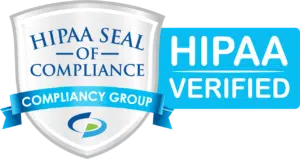It seems every home care agency owner is looking for that magic “fishing hole” of secret referrals. However, the reality of senior care and home health marketing and sales is entirely different than fantasy. Most caregiver companies ultimately tap-into the same limited referral sources, which include local hospitals, skilled nursing facilities and medical practices.
But, what if there are ways to “fish upstream” and identify less obvious targets? Certainly any agency that did so would benefit from reduced competition and more referral exclusivity. Here are some surprising home care referral sources you—and your competition—may not be accessing:
Financial/Estate Services
Many experienced agency owners understand that folks like professional fiduciaries and estate planners have occasional home care referrals. But, some don’t appreciate the true potential for home health marketing. One financial or estate services home care client can often yield the profit of ten or twenty hospital referrals.
Here’s why the referrals are so great… First, they are typically exclusive. An agency that makes in-roads with these accounts usually isn’t competing against a dozen other companies. Fiduciaries make all decisions on behalf of their clients and are free to refer at will.
Second, financial and estate service referrals usually involve clients with both chronic needs and monetary resources. These people may require many hours of daily caregiver services for years on end. And, they are fortunate to have the financial means to pay for it.
Long Term Care Insurance
Some home care agency owners contract with major long term care insurance carriers but never maximize the referral potential. It’s important to remember that many caregiver companies are represented on these lists for any given service area. But, savvy agencies find ways to earn direct referrals.
How does one convince an insurance representative to send referrals? Quality of care is certainly a good starting point. Insurance companies do often hear feedback (and complaints) with regards to caregiver services. But, that’s not enough.
Home care agencies must also track referrals from insurance representatives and compile a list of their names and contact information. A marketing campaign can then be developed that focuses on regular outreach to those folks. Staying top of mind can make all the difference
Veterans Benefits
Caregiver funding for America’s veterans usually takes two forms. The first is a program called “Aid & Attendance” and is for veterans who served active duty during certain wars or “periods of conflict.” Eligibility is determined by financial need, age and physical condition.
Third party organizations that help veterans access the Aid & Attendance benefit often contract directly with caregiver companies. They send referrals to home care agency partners, and the services are funded through the Veterans Administration.
The “Homemaker Program” is a second form of senior care funding for veterans that is implemented and managed by regional VA Hospitals. These programs vary by location, and eligibility is less restricted. Caregiver service hours are limited, but the VA Hospital serves as a direct payer.
Home Care Competitors
The idea of gaining referrals from industry competitors may sound strange. But, savvy home care agencies have been doing this for years. As the landscape continues to evolve, companies are beginning to specialize and develop niches.
For example, some agencies may focus on maintaining a limited caregiver staff that is highly trained in caring for patients with chronic conditions. They may have little interest in accepting cases with minimal hours of service. So, another company with an abundance of caregivers might form a partnership in order to accommodate the overflow.
Strategic Partnerships
Many non-competing medical services are different but complimentary. This is especially true for certain healthcare technology solutions such as fall detection devices, which pair well with home care. Strategic partnerships that make sense benefit both parties immensely.
A home care agency can grow the technology company’s sales by offering the device to their clients as a value-add. But, it’s a two-way street. The fall detection service partner will likely reciprocate by pitching home care services to their clients.
Non-Traditional Populations
Most home care agencies focus on marketing to seniors and their families. But, it’s good to remember that there are home health marketing opportunities for patient populations with caregiving needs. California, for example, invests huge resources into care for the developmentally-disabled of all ages.
Home care agencies can contract with California “Regional Centers” in order to provide services for this needy population. If successful, the agency then receives clients with authorized hours of care that are funded by the state.
Injured workers represent another non-traditional population in need of caregiver services. Home care agencies can contract with care management organizations that specialize in workers compensation care coordination. In these arrangements, billing rates are pre-negotiated and insurance carriers are the ultimate “payer.”
Final Thoughts
Success for home care agencies will always require hard work, great quality of care and outstanding service. There’s no easy path. With that said, specialized targeting of “non-traditional” referral sources can give any caregiver company a competitive edge. Savvy agencies that explore new waters are more likely to find the next great “fishing hole.”
If your home care agency is looking to build business quickly, also be sure to consult with the industry’s specialized marketing agency today!










